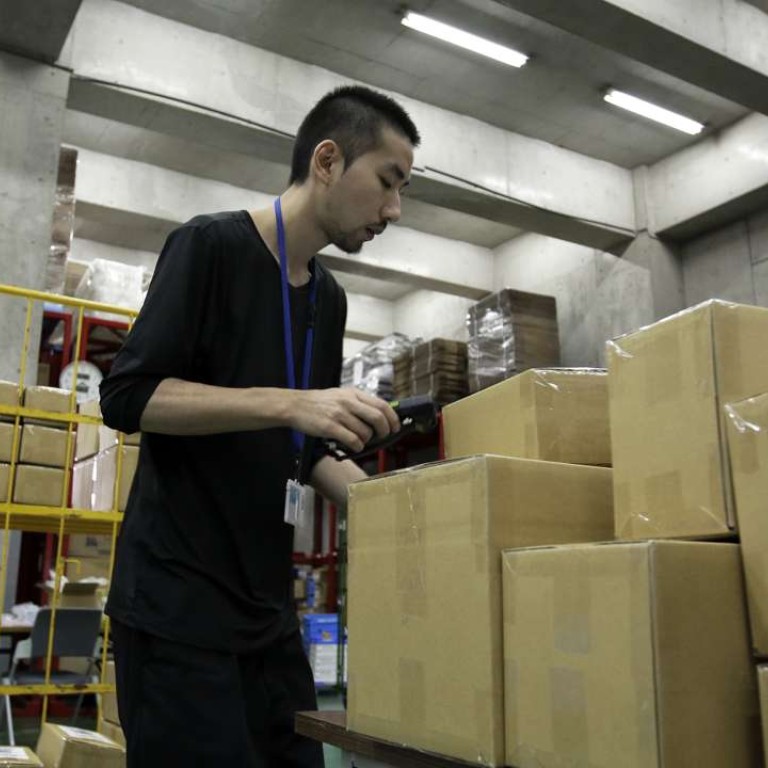
This one consumer group is about to have a huge impact on the future of online shopping in China
Online shopping for daily necessities in China is set to become mainstream
Online sales of packaged foods, alcoholic drinks and personal care products in China are expected to continue its explosive growth trajectory, thanks to a key demographic that is relying more on e-commerce for their daily necessities, a survey has found.
A survey of 4,600 people across 16 Chinese cities by consultancy OC&C found more consumers aged between 30 and 50 said they would turn to online shopping for shampoo and other daily necessities in the coming six months than those aged between 18 and 29.
Jack Chuang, partner, Greater China, OC&C Strategy Consultants, said convenience and price were factors in the shift to online shopping.
“The growing middle class want to save money on everyday consumables so they can use these savings towards a better lifestyle including for dining out or buying international fashion brands,” Chuang said.

China’s online spending on fast moving consumer goods (FMCG) -- the category spanning infant formula, to soft drinks, and beauty products --stands at more than US$25.3 billion, up from US$1.4 billion in 2010, according to Euromonitor International.
Younger generations, including those born post-1980s and 1990s are also set to drive online sales of FMCG thanks to increasing average household incomes and the new two-child policy, the report said.
Rising online spending by this demographic is expected to be more long-term compared to older consumers, as it will be a few years before this group have the need and means, Steven Kwok, manager, Greater China for OC&C, said.
Chinese consumers are drawn to buying these daily goods online as they work long hours and improvements to logistics operations have made deliveries more convenient, the OC&C report found.
The survey asked respondents to rate e-commerce platforms by product category based on their experiences. Amazon.cn came out top for infant milk formula as parents are driven to pay a premium for milk powder amid concerns about the safety of locally brands, with benlai.com taking No 1 spot for packaged food and soft drinks.
Wine9 was the favourite for wine as it provides a personal touch by suggesting grape varieties to pair with certain foods while sfbest.com was most highly rated for beauty and personal care products, the report found.

Taobao, which is operated by Chinese e-commerce giant Alibaba, appeared once in the top five rankings for the four categories, even as its 2015 Single’s Day sale raked in US$14.3 billion in sales.
Kwok said that while Taobao and Tmall are the largest players, their shopping experiences are not necessarily the most enjoyable in the eyes of consumers when compared to more specialist sites.
OC&C’s report found Alibaba commanded a 52 per cent market share for FMCG compared to its 70 per cent overall market share for online shopping.

However both Taobao and sister e-commerce site Tmall received the highest brand awareness and shopper penetration across the four major categories. JD.com took third place across the four categories for both brand awareness and for percentage of consumers who had shopped on the site.
Brands planning to reach Chinese online consumers should not focus on just one e-commerce player, the report found, and should instead use the strengths of each platform in terms of traffic, service and quality as well as considering in-house operations.
The report noted that cosmetics chain Sephora, which was rated fourth for beauty and personal care e-commerce sites, runs stores on platforms including JD.com but also ensures customers visit its own website by only listing around half its products on third party sites.
Alibaba Group is the owner of the South China Morning Post.

